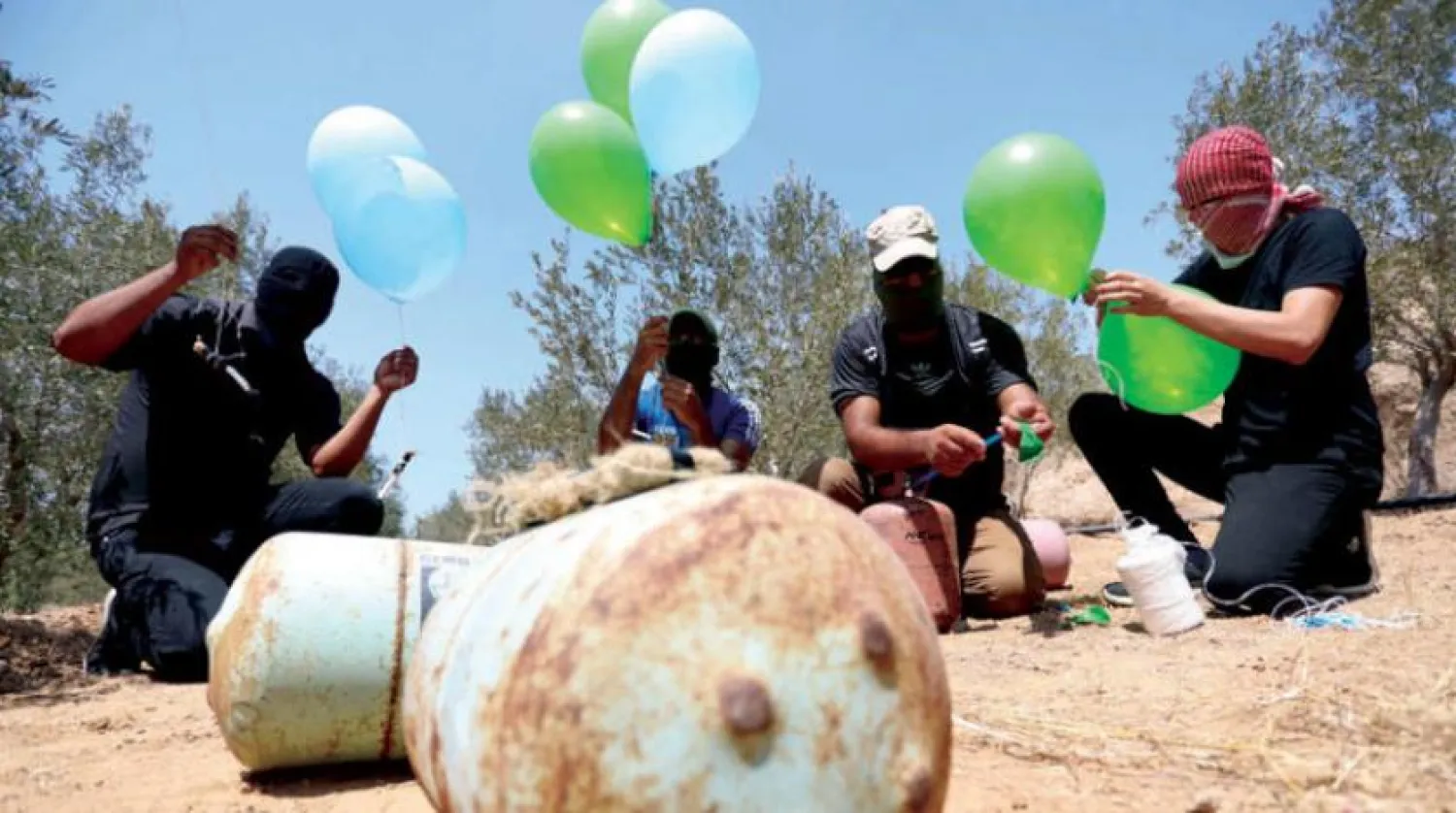Hamas has decided to reduce tensions with Israel by stopping clashes with Israeli soldiers on borders and halting the launch of incendiary balloons, informed Palestinian sources told Asharq Al-Awsat.
The group’s decision is part of an effort to avoid sabotaging Egyptian attempts to maintain calm in Gaza.
Sources revealed that Hamas had responded to a request to lower tensions by Egypt, which was enraged by the group’s latest escalation on Saturday.
The agreement between Cairo and Hamas follows Ismail Haniyeh, the group's politburo head, discussing recent Gaza developments with Egyptian officials.
“Haniyeh’s contacts with the brothers in Egypt came to relieve our people and resolve some outstanding issues,” said Hamas spokesman Abdelatif al-Qanou.
For Haniyeh, cooling the atmosphere is vital after Egyptian anger with Hamas’ escalations led to the closure of the Rafah border crossing on Monday. Egyptian authorities did not announce when they would reopen it.
Hamas had angered Egypt by implementing its plan for gradual escalation despite having promised Cairo that the group’s border marches would not lead to more violence.
On Saturday, Hamas kickstarted popular marches on Gaza's borders with Israel. These demonstrations led to confrontations and the two sides exchanging fire.
Israel then bombed Gaza and Hamas launched cross-border incendiary balloons.
The attacks set off fires in southern Israel on Monday and provoked retaliation from the Israeli military, which hit several Hamas targets on Monday evening.
The army said in a statement that “fighter jets struck a Hamas weapons manufacturing site in Khan Yunis, as well as a terrorist tunnel entrance in Jabalia.”
“A Hamas underground rocket launch site that is located adjacent to civilian homes and a school in Shejaiya, was also struck,” it added.
Earlier on Monday, Israel Fire and Rescue Services investigators determined that arson balloons launched from the Gaza Strip caused at least nine fires in southern Israel.









